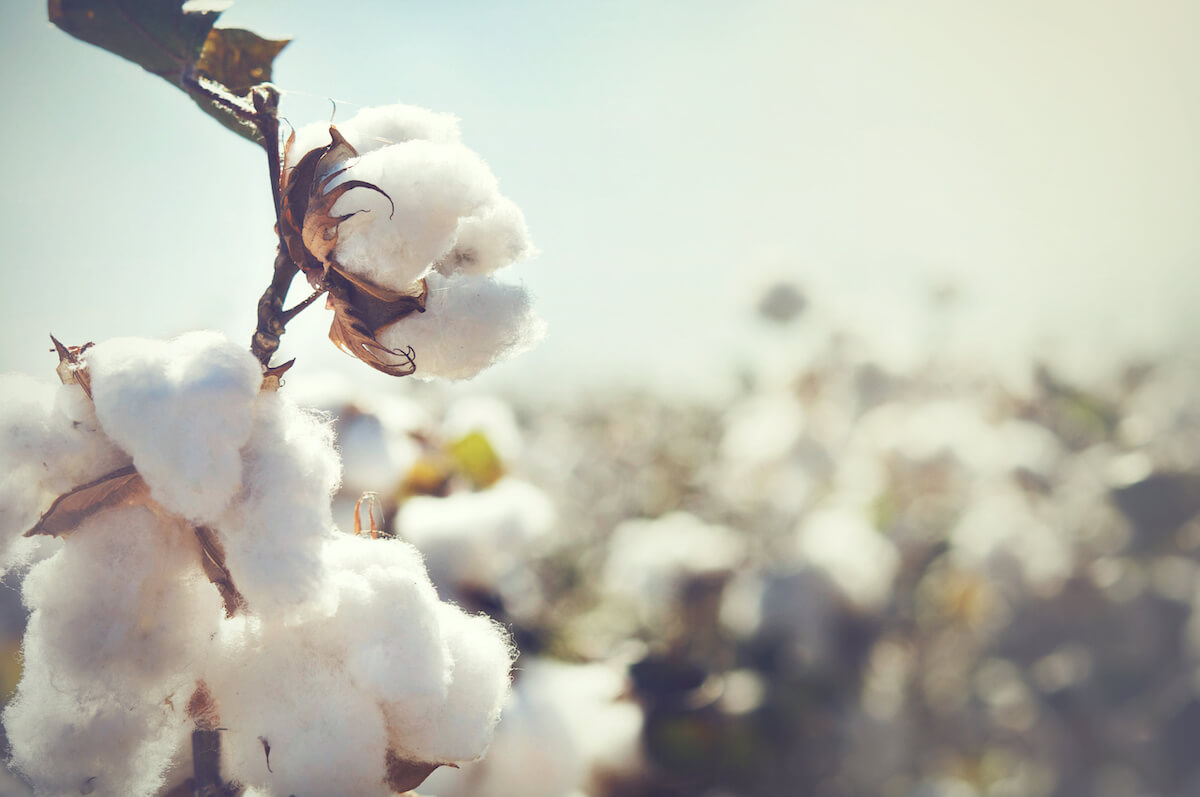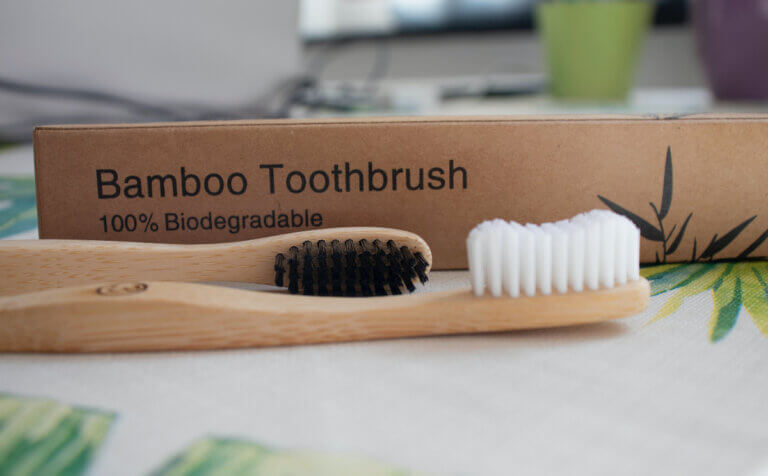Last Updated: March 3, 2022
You ride your bike to work, use a reusable water bottle and support B Corporations. In other words, you’re doing your part to reduce your carbon footprint and help the environment — but have you thought about the materials in your clothing and bedding, and how they might be impacting the environment? Let’s take a look at how cotton production impacts the environment, and how organic cotton could provide a more sustainable alternative.
How Cotton Production Impacts the Environment
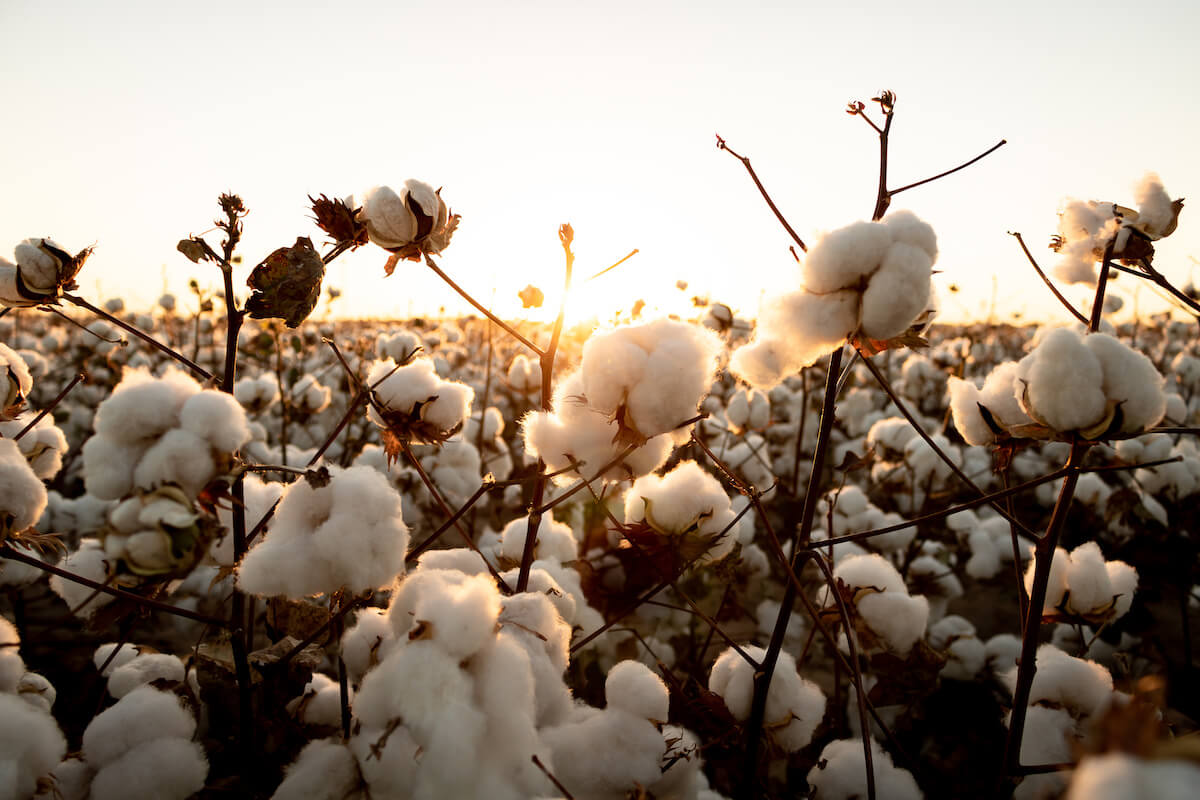
According to the World Wildlife Fund, “Cotton’s most prominent environmental impacts result from the use of agrochemicals (especially pesticides), the consumption of water and the conversion of habitat to agricultural use.”
They state on their website that the application of substantial fertilizers and pesticides “threaten the quality of soil and water, as well as the health of biodiversity in and downstream from the fields. Heavy use of pesticides also raises concern for the health of farm workers and nearby populations.”
The World Wildlife Fund wants to see global cotton production become more sustainable — produced with less water and a minimum amount of chemicals.
Is Organic Cotton Really Better?
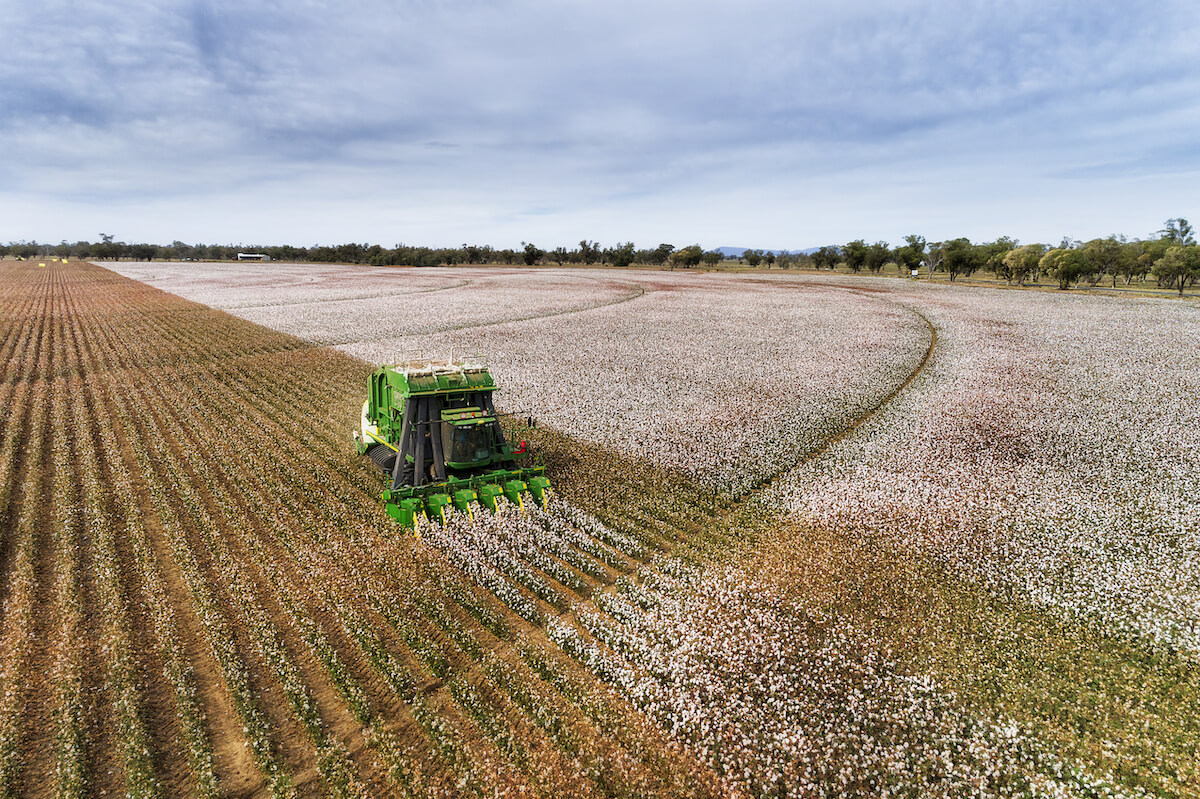
When it comes to organic cotton production, a 2020 study in Renewable Agriculture and Food Systems showed that it comes with some ecological positives, including an increase in beneficial organisms on farms and higher soil quality, which could help to mitigate climate change.
What’s more, according to a report from Sourcing Journal, organic cotton is 46% less harmful to global warming, and results in 70% less acidification of land and water.
However, organic cotton currently makes up less than 1% of the world’s cotton market. While many brands like Patagonia and Icebreaker use 100% organic cotton, most are still reluctant to make the switch because it’s more expensive to produce.
Organic Cotton Is ‘More Durable’
Robert Pritchard is the senior product development manager at hülyahome, an organic cotton bedding and eco-friendly pillow retailer. He says that for him and his business partner, organic cotton was an obvious choice — not only for its eco-friendly benefits, but also because it’s hypoallergenic, high quality and more durable than regular cotton.
“The idea behind our products is not only do they look and feel good, but they’re also long lasting, which means people will save money and we’ll be minimizing the waste that ends up in a landfill,” he says.
The company’s organic cotton products are GOTS Certified, which is the world’s highest standard for organic textiles. This means their materials are randomly tested by independent auditors to ensure they’re free of agricultural chemical agents and toxins. It also ensures that the farmers who produce the cotton have more income security and no exposure to pesticides and herbicides, which can cause long-term health issues.
Related Articles
Keeping Pesticides Out of the Food Supply
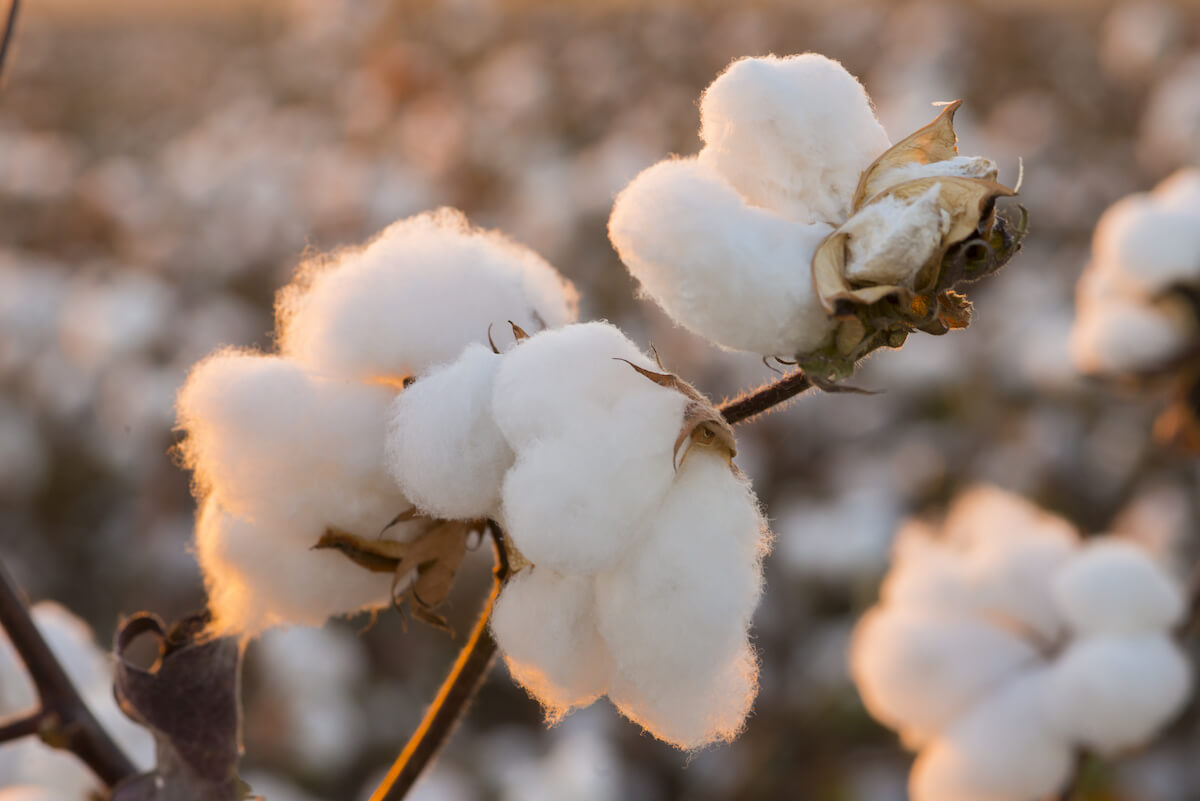
In addition to being free of pesticides and herbicides, Pritchard says organic cotton was an easy choice for the company because the part of the plant that isn’t used to make the textiles is put into food products and ground up and fed to animals.
The National Wildlife Federation states: “Organic cotton keeps pesticides out of the food supply as only 35 percent of the cotton harvest in the United States is turned into cloth. The seed, which is crushed and separated into oil, meal and hulls, comprises nearly 60 percent. Cottonseed oil shows up in cookies, potato chips, marinades, salad dressings and many other processed foods. Cotton meal is given to both dairy and beef cattle as a high-protein feed supplement.”
Although organic cotton products sell at a higher price point than regular cotton, Pritchard says they end up paying for themselves in the long run because you won’t need to replace them as often. Many sustainable clothing brands ask consumers to think about cost per wear, rather than ticket price, when purchasing high-quality pieces.
The Benefits of Organic Cotton
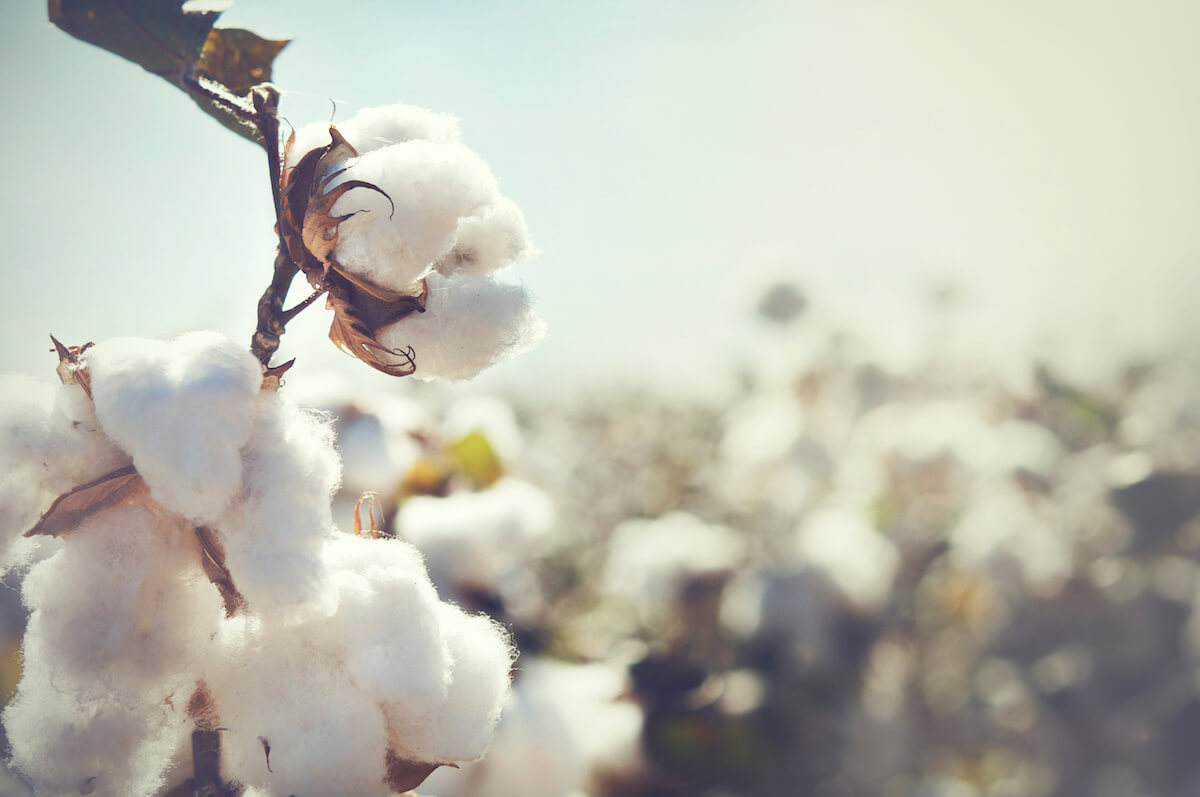
For people with allergies or skin sensitivities, organic cotton is also a much better option than cheaper materials, and it can also be a benefit for anyone who gets too cold or too hot because it’s much more breathable.
Overall, whether you’re a business owner or a consumer, making the choice to use organic cotton benefits the entire ecosystem — from the health and safety of the farmers who produce it, to the communities whose water supply is affected by pesticides.
“Everything is related, and organic cotton is good for everyone,” Pritchard says.
Tips on Shopping More Sustainability
If you’re hoping to adopt more sustainable shopping habits this year, here are a few tips to keep in mind:
1. Before buying a product, check out the tag or the brand’s website to ensure they’re using 100% GOTS certified organic cotton.
2. Keep an eye out for fair trade certification to ensure the workers producing the cotton are being treated ethically along the way.
3. Shop second-hand. If you don’t want to buy a brand-new product, opting for second-hand or vintage products or clothing is always the best option for the environment because it doesn’t require any production at all. When in doubt, check out your local vintage or consignment shop.
